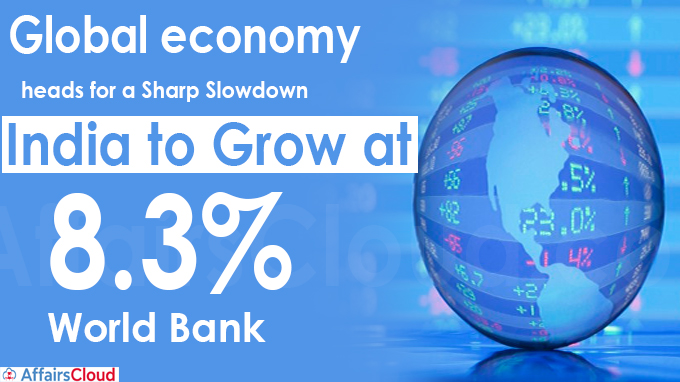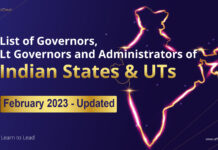
On January 11, 2022, the World Bank’s (WB) Global Economic Prospects Report was released stating a sharp decline in global growth from 5.5% in 2021 to 4.1% in 2022 and 3.2% in 2023.
- On the Indian front, its annual growth is projected at 8.3% in 2021, 8.7% in 2022, and 6.8% in 2023. India’s growth contracted 7.3% (-7.3%) in 2020.
What stated in the report?
As per the report, the global economy is facing a ‘pronounced slowdown’ due to the new variants of Covid-19 like Omicron; a rise in inflation, debt and income inequality; the winding down of fiscal and monetary support; and the fading of pent-up demand.
- All these factors have reduced the recovery prospects in emerging and developing economies.
- The report also flagged the risks posed by growing inequality and rising inflation.
Widening of Growth Gap in Different economies:
i.This slowdown will create a wide gap in growth rates between the advanced economies and emerging and developing economies.
- Growth in advanced economies is expected to decline from 5% in 2021 to 8% in 2022 and 2.3% in 2023.
- On the other hand, for emerging and developing economies, the growth is expected to drop from 3% in 2021 to 4.6% in 2022 and 4.4% in 2023.
ii.By 2023, all advanced economies will have achieved a full output recovery. However, output in emerging and developing economies will remain 4% below its pre-pandemic trend.
- Output of fragile and conflict-affected economies will be 5% below its pre-pandemic level.
- Output of small island states will be 8.5% below its pre-pandemic level.
Regional Projections:
| Region | 2022 | 2023 |
|---|---|---|
| South Asia | 7.6% | 6% |
| East Asia and Pacific | 5.1% | 5.2% |
| Europe and Central Asia | 3% | 2.9% |
| Latin America and the Caribbean | 2.6% | 2.7% |
| Middle East and North Africa | 4.4% | 3.4% |
| Sub-Saharan Africa | 3.6% | 3.8% |
Risks specific to South Asia:
As per the report, the emergence of omicron could hinder economic activity in the South Asian Region with mobility restrictions and lower external demand; inflation, worsening domestic financing conditions, eroding real incomes, weakening of financial sector; increase in climate risks, poverty, disease, child mortality and food prices.
Key Points:
i.Globally in advanced economies, inflation is at the highest rates since 2008. Also, in emerging markets and developing economies, it has reached its highest rate since 2011.
- In this regard, many emerging and developing economies are withdrawing policy support to contain inflationary pressures hindering recovery.
ii.Pandemic has raised global job and income inequality, which have been higher for women and low-skilled and informal workers.
- There is inequality in many other activities too like in the availability of vaccines; in economic growth; in access to education and health care; etc.
Analytical sections of Report:
The report also features analytical sections providing insights into three emerging obstacles to recovery in developing economies. These are:
- Debt
- Implications of boom-and-bust cycles of commodity prices for emerging market and developing economies
- COVID-19’s impact on global inequality.
Click Here for Official Report
Recent Related News:
i.WB released the updated Groundswell report “Groundswell Part 2: Acting on Internal Climate Migration” on 13th September 2021. According to the report, Climate Change could force more than 216 million people from across 6 regions (South Asia; Latin America; Sub-Saharan Africa; East Asia and the Pacific; North Africa; and Eastern Europe and Central Asia) to migrate from their own countries by 2050.
ii.WB group announced to discontinue its “Doing Business” reports after finding data irregularities in countries rankings in 2018 and 2020 reports. The law investigation agency, WilmerHale, has unveiled inconsistent with the Doing Business methodology in the 2018 report, which favoured China’s position.
About World Bank (WB):
President– David Robert Malpass
Headquarters– Washington DC, United States (US)
Member Nations– 189




